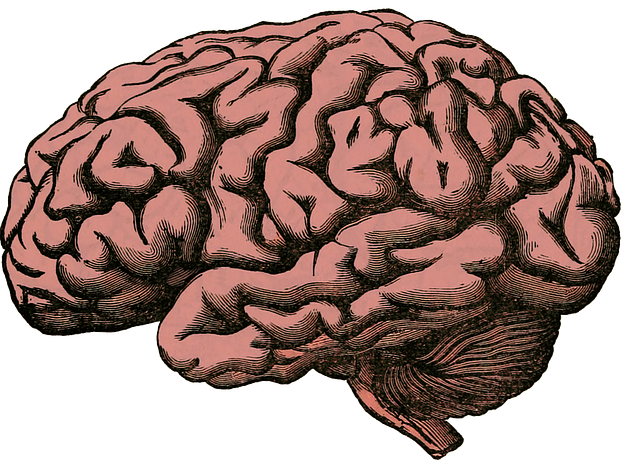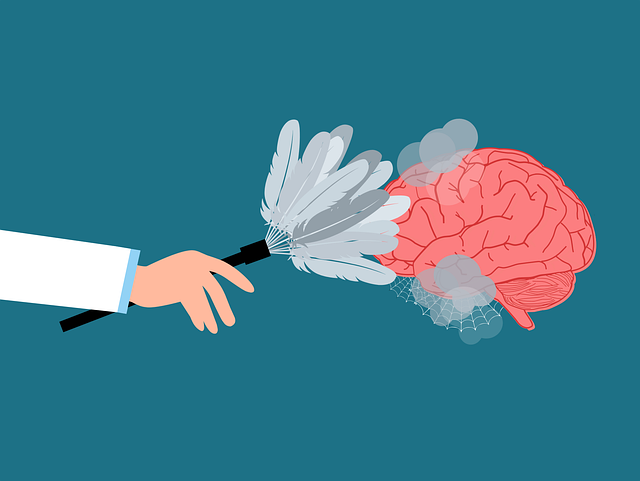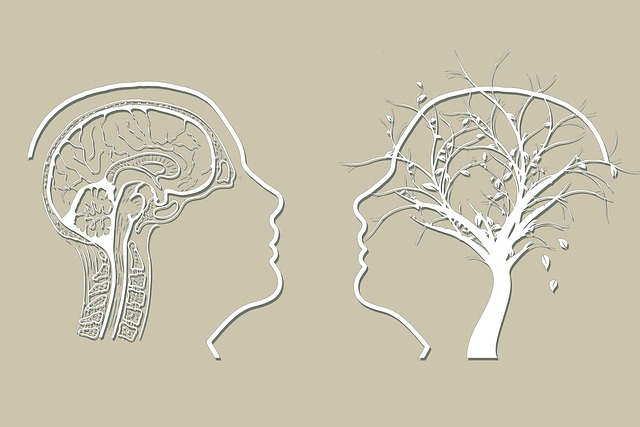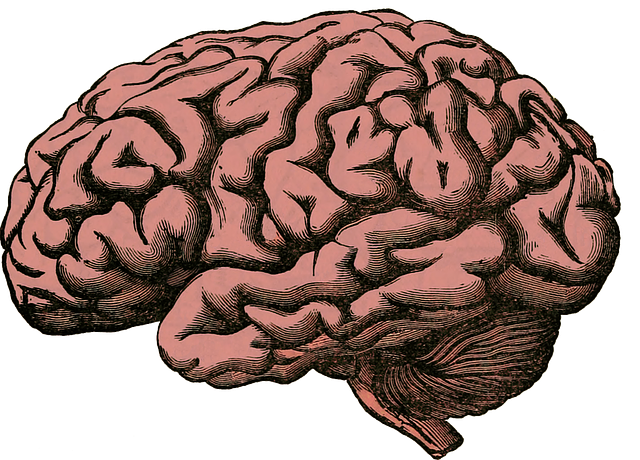Understanding Mental Health Data is crucial for providing effective Highlands Ranch Post-Traumatic Stress Disorder Therapy and improving community well-being. Through diverse data collection methods, researchers capture individual experiences, behaviors, and symptoms, offering insights into local mental health challenges. Data preparation ensures consistency and reliability, enabling the identification of trends, patterns, and correlations. Integrating demographic, lifestyle, and environmental factors provides a holistic view, guiding public awareness campaigns, crisis intervention strategies, and community resilience building. By analyzing PTSD patterns in Highlands Ranch, therapists can tailor interventions, improve patient outcomes, and support healthcare provider well-being. Advanced algorithms and technology enhance data analysis, personalizing therapy and expanding access through digital platforms and apps, fostering self-care and community engagement.
Mental health data analysis is a powerful tool for understanding and addressing complex issues like Post-Traumatic Stress Disorder (PTSD). This article explores the process of analyzing PTSD patterns in Highlands Ranch, utilizing data to guide effective therapy. We delve into data collection and preparation methods, highlighting strategies that have shown promise in improving treatment outcomes. Additionally, we discuss the role of technology in enhancing access to care and patient engagement for those struggling with PTSD in this community.
- Understanding Mental Health Data: Collection and Preparation
- Analyzing Post-Traumatic Stress Disorder (PTSD) Patterns in Highlands Ranch
- Unlocking Insights: Interpreting Data for Effective Therapy
- The Role of Technology in Enhancing Treatment Outcomes
- Strategies for Improving Access to Care and Patient Engagement
Understanding Mental Health Data: Collection and Preparation

Understanding Mental Health Data is a crucial step in providing effective Highlands Ranch Post-Traumatic Stress Disorder Therapy and improving overall community well-being. The collection of accurate and comprehensive data involves various methods, from clinical assessments to online surveys, ensuring diverse perspectives. This process captures individual experiences, behaviors, and symptoms, offering insights into the scope of mental health challenges within a population.
Data preparation is an essential part of the journey. It requires cleaning, coding, and categorizing information to ensure consistency and reliability. By organizing data effectively, researchers and therapists can identify trends, patterns, and correlations, leading to tailored interventions. This step also involves integrating multiple sources, such as demographic details, lifestyle factors, and environmental influences, to gain a holistic view of mental health in Highlands Ranch and potentially inform the development of public awareness campaigns, crisis intervention guidance, and Mind Over Matter principles for community resilience.
Analyzing Post-Traumatic Stress Disorder (PTSD) Patterns in Highlands Ranch

In Highlands Ranch, analyzing Post-Traumatic Stress Disorder (PTSD) patterns is a critical aspect of mental health care. The unique demographic and socio-cultural landscape of this community presents specific challenges and opportunities in PTSD therapy. Data from local healthcare providers reveals trends that highlight the prevalence of PTSD among various populations, including veterans, survivors of domestic violence, and individuals impacted by natural disasters. Understanding these patterns is essential for tailoring effective trauma support services and burnout prevention strategies for healthcare providers.
By delving into these data, mental health professionals can identify hotspots of PTSD within the community and design targeted interventions. This may include specialized group therapy sessions, individual counseling, and community outreach programs aimed at raising awareness about available resources. Additionally, incorporating burnout prevention techniques among healthcare workers is crucial to ensure sustainability in delivering quality PTSD therapy. Such strategies not only enhance the well-being of care providers but also strengthen the overall resilience of the community in addressing this complex mental health challenge.
Unlocking Insights: Interpreting Data for Effective Therapy

Unlocking Insights: Interpreting Data for Effective Therapy
In the realm of mental health, data analysis has emerged as a powerful tool to gain profound insights into complex conditions like Post-Traumatic Stress Disorder (PTSD). By delving into patient records and research findings, therapists in Highlands Ranch can uncover patterns and trends that were once elusive. This process involves not just quantitative analysis but also qualitative interpretation, where the human element of compassion and cultural sensitivity plays a pivotal role. Understanding individual experiences, personal narratives, and unique cultural backgrounds allows for a tailored approach to therapy, making self-care practices more effective and accessible.
Through meticulous data interpretation, therapists can identify specific triggers, coping mechanisms, and emotional responses associated with PTSD. This knowledge enables them to design targeted interventions that address the root causes. By integrating evidence-based treatments with compassion cultivation practices, mental healthcare professionals foster a safe space for patients to process traumatic memories, develop resilience, and integrate positive self-care routines into their daily lives. Thus, data becomes a bridge between scientific understanding and compassionate, culturally sensitive therapy, ultimately enhancing the overall effectiveness of Highlands Ranch PTSD Therapy.
The Role of Technology in Enhancing Treatment Outcomes

In the realm of mental health data analysis, technology plays a pivotal role in enhancing treatment outcomes and revolutionizing Highlands Ranch Post-Traumatic Stress Disorder (PTSD) therapy. Through advanced algorithms and machine learning models, healthcare professionals can now gain deeper insights from patient data, enabling more personalized and effective interventions. For instance, digital platforms can facilitate the collection of real-time symptoms tracking, allowing therapists to monitor progress and adjust treatment plans accordingly.
Furthermore, technology supports various therapeutic modalities such as Social Skills Training and Mindfulness Meditation by providing structured programs accessible through apps and online platforms. This accessibility not only expands therapy reach but also encourages self-management among patients. Additionally, the development of Public Awareness Campaigns can leverage technological tools to spread education and destigmatize mental health issues, fostering a supportive community and ultimately improving treatment outcomes.
Strategies for Improving Access to Care and Patient Engagement

In today’s digital era, leveraging advanced data analysis techniques can significantly enhance access to mental health care. One promising strategy involves utilizing online platforms and mobile applications tailored for specific conditions, such as Highlands Ranch Post-Traumatic Stress Disorder Therapy (PTSD). These tools offer accessible, affordable, and convenient resources, enabling individuals to receive initial assessments, engage in therapeutic exercises, and monitor their progress remotely. For instance, apps incorporating Compassion Cultivation Practices or Coping Skills Development can foster self-care and patient engagement, empowering users to actively participate in their recovery journeys.
Furthermore, integrating Cultural Sensitivity in Mental Healthcare Practice ensures that these digital interventions cater to diverse populations. By considering cultural nuances, language barriers, and unique community needs, mental health data analysis can create more inclusive and effective care pathways. This personalized approach not only improves patient engagement but also promotes better outcomes, making quality mental healthcare more accessible to all, regardless of geographical location or background.
Mental health data analysis plays a pivotal role in understanding and addressing complex issues like PTSD in communities such as Highlands Ranch. By meticulously collecting, preparing, and interpreting data, healthcare professionals can unlock valuable insights to enhance therapy outcomes. The integration of technology in treatment, combined with strategies that improve access to care and patient engagement, holds the promise of transforming mental health services for individuals affected by PTSD. This comprehensive approach ensures a more effective and accessible Highlands Ranch post-traumatic stress disorder therapy.














